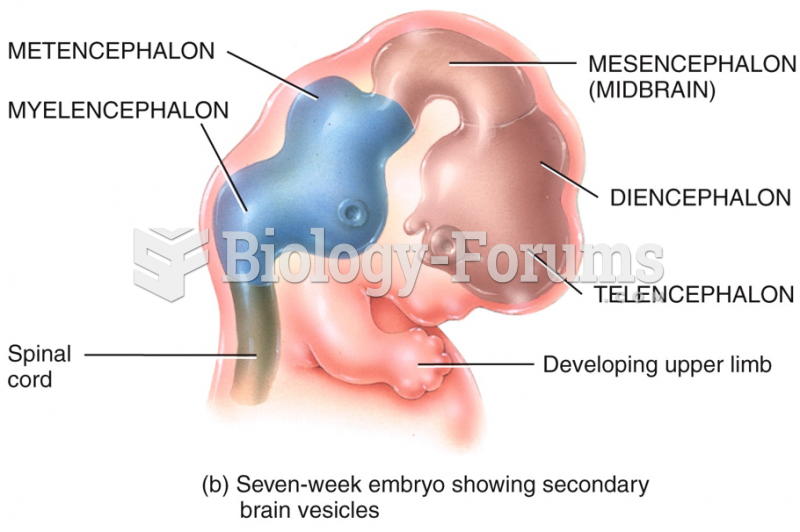|
|
|
Multiple experimental evidences have confirmed that at the molecular level, cancer is caused by lesions in cellular DNA.
Urine turns bright yellow if larger than normal amounts of certain substances are consumed; one of these substances is asparagus.
A seasonal flu vaccine is the best way to reduce the chances you will get seasonal influenza and spread it to others.
Long-term mental and physical effects from substance abuse include: paranoia, psychosis, immune deficiencies, and organ damage.
A recent study has found that following a diet rich in berries may slow down the aging process of the brain. This diet apparently helps to keep dopamine levels much higher than are seen in normal individuals who do not eat berries as a regular part of their diet as they enter their later years.






